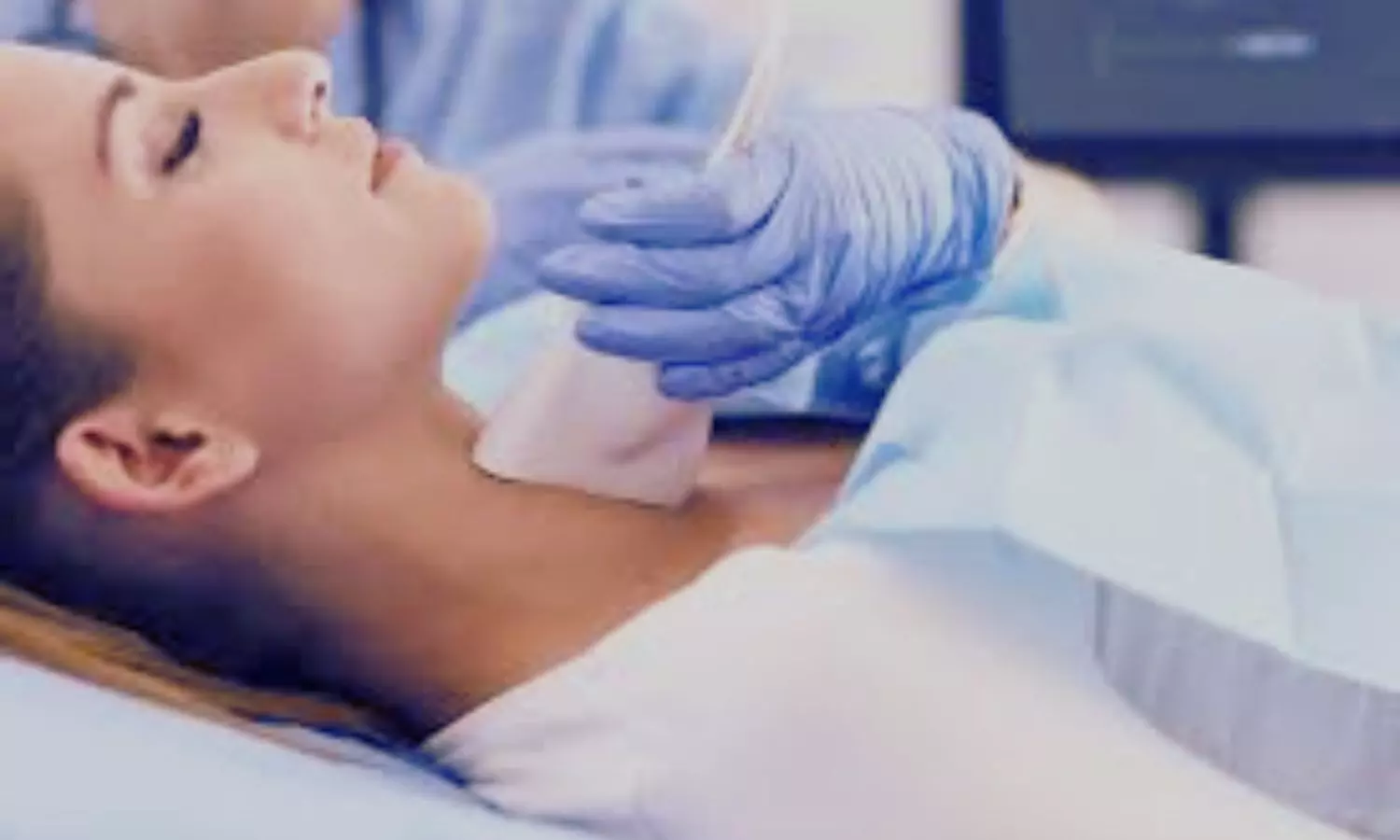Radioiodine Ablation Therapy Feasible in Hemodialysis-Dependent ESKD Patients with Low-Risk Thyroid Cancer: Case Series
- byDoctor News Daily Team
- 19 September, 2025
- 0 Comments
- 0 Mins

Australia: In a recently published case series inBMC Nephrology, researchers from the University of Sydney, led by Dr. Raymond Lin, have demonstrated that with tailored protocols and safety precautions, radioiodine (I-131) therapy can be safely administered to patients with end-stage kidney disease (ESKD) on haemodialysis (HD) who are being treated for thyroid cancer. Radioiodine therapy is a well-established adjuvant treatment for differentiated thyroid cancer (DTC), particularly following thyroidectomy. However, its use in patients with impaired renal function poses a significant challenge. In those with ESKD, the clearance of I-131 is severely reduced, increasing the risk of prolonged radiation exposure and myelotoxicity. Currently, there is no universally accepted protocol for administering radioiodine in patients on dialysis, making treatment planning complex. To address this, Dr. Lin and colleagues reported on two ESKD patients undergoing chronic haemodialysis who received I-131 therapy for low-risk thyroid cancer. The team adapted its institutional approach by implementing modifications to infrastructure, scheduling, and radiation safety protocols. This included pre-treatment patient training, altered dialysis timing, and close monitoring of serum radioactivity to ensure patient and staff safety.
Disclaimer: This website is designed for healthcare professionals and serves solely for informational purposes.
The content provided should not be interpreted as medical advice, diagnosis, treatment recommendations, prescriptions, or endorsements of specific medical practices. It is not a replacement for professional medical consultation or the expertise of a licensed healthcare provider.
Given the ever-evolving nature of medical science, we strive to keep our information accurate and up to date. However, we do not guarantee the completeness or accuracy of the content.
If you come across any inconsistencies, please reach out to us at
admin@doctornewsdaily.com.
We do not support or endorse medical opinions, treatments, or recommendations that contradict the advice of qualified healthcare professionals.
By using this website, you agree to our
Terms of Use,
Privacy Policy, and
Advertisement Policy.
For further details, please review our
Full Disclaimer.
Recent News
NMC approves 2,337 new PG medical seats for NEET P...
- 22 October, 2025
Rajasthan MBBS student airlifted from Kazakhstan a...
- 22 October, 2025
NEET SS 2025 now on December 26th, 27th: NBE
- 22 October, 2025
Medical Bulletin 22/October/2025
- 22 October, 2025
Daily Newsletter
Get all the top stories from Blogs to keep track.


0 Comments
Post a comment
No comments yet. Be the first to comment!